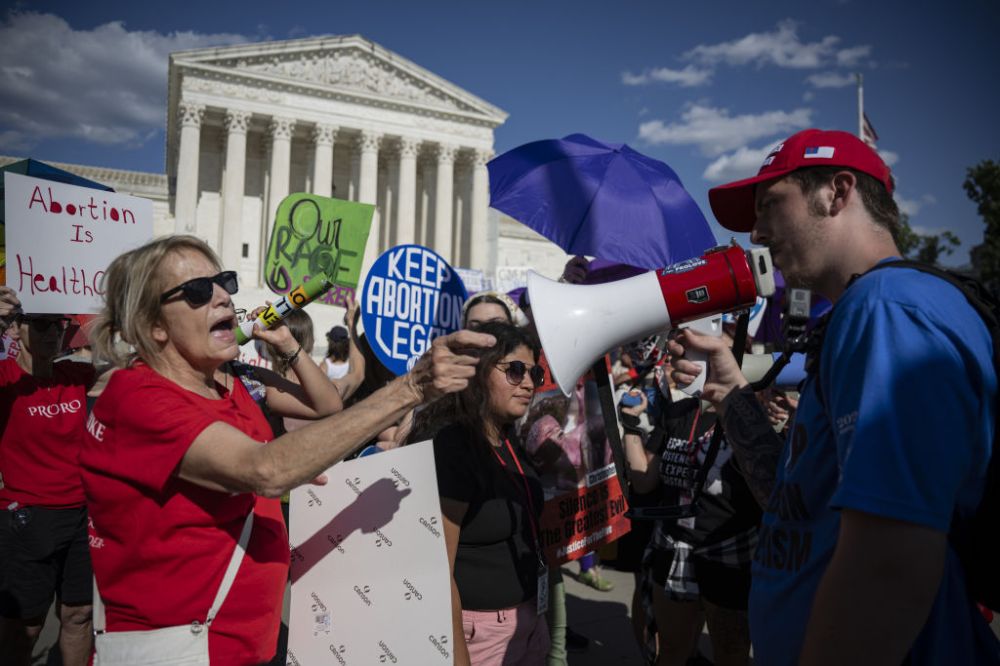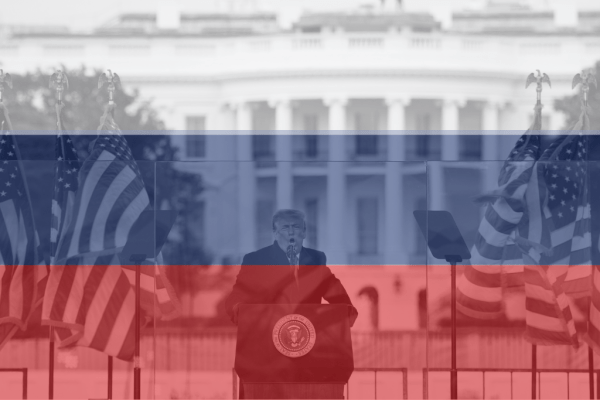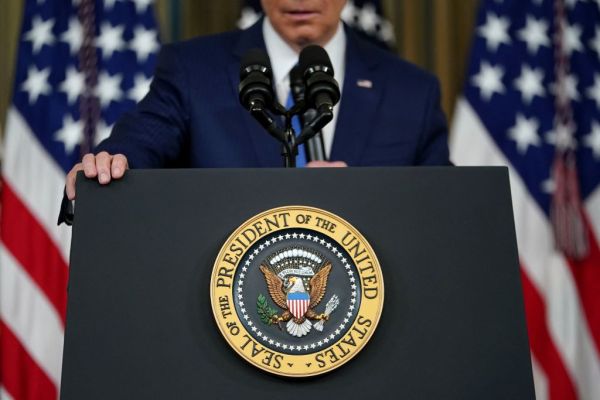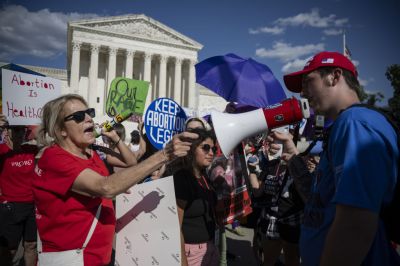The presidential election tomorrow will not resolve very much in American politics. It may not even resolve the question of who the next president is going to be, at least for a while. Who knows?
One thing we can be sure is not going to get sorted out in short order: our anguished, ongoing national fight over abortion.
The Democrats think they have a winning issue with abortion, and they may not be wrong. Republicans might consider with some wariness the recent history of abortion in the swing states: Nevada and Arizona both have abortion-rights measures on the ballot, and both are expected to pass; Wisconsin’s Supreme Court was tilted toward abortion rights with the election of a sympathetic justice in 2023; Michigan codified abortion rights via ballot initiative in 2022; Pennsylvania has seen a spate of abortion-rights candidates elected since Dobbs, and the issue played a role in a securing a Democratic majority in the state house. The recent abortion-rights push has had less effect in Georgia and North Carolina. Democrats hope—believe would be too strong a word right now—that the desire to secure abortion rights, or to punish Republicans for attempts to curtail abortion rights, will be sufficient to carry Harris to victory in enough of those swing states to win her the presidency. Democrats wouldn’t put it that way, but they hope to make Harris the abortion president.
I do not share the Democrats’ view on abortion but, even from the bunker of my hostile assumptions, that doesn’t look like the dumbest idea in political history. Americans are a squirrely bunch, and they are not especially difficult to stampede into doing something stupid or awful—they have, bear in mind, already elected Donald Trump once.
In our time of imbecilic populism, there is an imperative for politicians and activists to pretend that We the People can never be wrong. And that ends up being a problem when We the People—who are, in the main, fools and worse—aren’t with you on an issue. And so you have to invent some new categories—the Real Americans™ who are always on your side—or else pretend that We the People have been misled, that (the Republican version) they are victims of media bias or (the Democratic version) that they have been bamboozled by people who exploit their quaint religious beliefs in order to blind them to their own interests. We the People and the world’s political forces are like the czar and his ministers: The former must always be good and wise and holy, while the latter is responsible for anything that goes wrong. The czar has absolute power and is responsible for absolutely nothing. All of this nonsense is easier to keep straight in your head if you believe that the other side is simply evil.
For pro-lifers, the facts of the case can be hard to look at in the face. What are the facts? One of them is that We the People were a lot more sympathetic to the pro-life position when it was only hypothetical. Another is that while Americans traditionally have held a much more restrictionist view of abortion than had been established under the Roe-Casey regime—becoming progressively less open to abortion as the pregnancy progressed—they were not and are not fundamentally anti-abortion. Another is that the Democrats’ demonization campaign against the Supreme Court is working, even (especially?) when it is stupid and dishonest. Yet another is that the good-faith objections to abortion restrictions are based, at least in part, on libertarian assumptions shared by a great many conservatives, including anti-abortion conservatives, the morally serious among whom have great regard for individual liberties and for the autonomy of the individual citizen. (Democrats are single-serving libertarians, to be sure—wild geese when it comes to abortion and politically acceptable sexual appetites, totalitarian ants when it comes to anything to do with making money unless the profits come from performing abortions.)
There is great evil in the practice of abortion, but there also are good-faith disagreements between people of good will who simply are working from different priors and who disagree not only about conclusions but about the facts of the case per se. If I believed, as abortion-rights advocates say they believe, that the question involves only what a woman does with her own body, then I would come to more or less the same legal and political conclusions as my progressive friends have—but I believe that they are in error about the facts.
That’s not the end of the tough stuff for abortion opponents. Not only are our positions not as popular as they would need to be for us to prevail democratically—and the chance to prevail or to fail democratically is all Dobbs delivered and all it was intended to deliver—it also is the case that our fellow travelers have done a lot of shoddy work where they do prevail politically. We abortion opponents have found ourselves flat-footed when put into the position of defending laws that are badly written, ill-considered, or, in some cases, archaic. And that is not only a messaging problem: A bad law is a bad law even if there is a good marketing campaign executed on its behalf. And so while we have a lot of work ahead of us when it comes to political and moral persuasion, we also have a lot of work ahead of us when it comes to the substance of what it is we wish to see done legally.
Inconveniently, these challenges come at a moment when the pro-life movement is at the nadir of its credibility, its leaders and foot-soldiers alike having rallied to the cause of Donald Trump, who does not actually share our views or our priorities on abortion and whose moral grotesquerie is, while bad enough in its general application, much worse in the specific matter of its application to women. Anti-abortion leaders who have spent their lives bristling at accusations that they simply hate women have put themselves and their movement in the service of a man who simply hates women. Having insisted for a generation that the anti-abortion movement isn’t just about old men with weird sexual hang-ups, the anti-abortion movement has put itself into the service of an old man whose sexual hang-ups are so very weird that Sigmund Freud couldn’t have made them up in the course of a five-week ether bender with the Marquis de Sade. Future historians will have a hard time believing that the most powerful polity in human history up to that point chose as its chief magistrate a dabbler in pornographic films whose youngest son is named after the imaginary friend he invented to lie to the New York Post about his sex life. If the issue were a less urgent one, it would be tempting to simply give up in some combination of despair and contempt.
But the issue is an urgent one.
And so, whatever happens on Tuesday, the anti-abortion movement is in an unenviable place: Its leaders are in no small part self-discrediting power-worshipers and party hacks, its reputation is in tatters, and its issues are, at least for the moment, Election Day losers. There isn’t any good outcome to be had. If Kamala Harris is carried to a swing-state victory on a wave of abortion-rights enthusiasm, the pro-life movement can expect to be demoted a few degrees down the Republican issue totem pole. If Donald Trump should win, it shows that right-wing populists don’t need to be worth a damn on abortion to win, that the anti-abortion movement is a cheap date (desperately in need of some kind of moral morning-after pill, if there were such a thing), and that the anti-abortion cause has been defeated not by the arguments of its opponents but by the contempt and corruption of its so-called champions.
Having been beaten down to the foundations, we must build again on those foundations. Or, if the foundations are destroyed, to build new foundations and build on them anew.
Words About Words
Honest question, New York Times—if it is minor, is it a crisis?
Headline: “Mexico’s New President Faces Her First Major Crisis.”
As I have written before, I think minor is a pretty interesting word. So is crisis.
Crisis is one of those inflationary words, a word writers (especially headline writers) use when they want to up the urgency. That desire for drama in prose often leads to error—the conflation of epicenter with center, the abuse of unique, etc. But, still, there are crises in the world.
Speaking of which: Crisis is one of those rare-ish words of Greek origin that we make plural in English by messing with the vowels. Parentheses, crises, hypotheses, ellipses, etc. Have you noticed a strange habit that some people have of applying the same principle to the name of Reese’s Peanut Butter Cups? People often pronounce it “REE-sees” when they mean the plural, as though the singular form were Resis, like thesis, and then Reses, like theses. Funny how we generalize without thinking about it. Something is at work there that Noam Chomsky might have done some good work digging into if he hadn’t dedicated so much time to being the second-most trite and banal political commentator in the English-speaking world.
(Sean Hannity, of course.)
Do you know what the literal meaning of crisis is? Or was, in Greek? It is not emergency or pressing difficulty—it is, as someone once said, “a time for choosing.”
The ancient Greek roots mean “decide” and “decision.” In both Latin and Middle English, crisis was mainly a medical term, “the turning point for better or worse in an acute disease or fever,” as our friends at Merriam-Webster put it. A crisis was the point at which a disease was set on a final course toward either recovery or death. The sense of crisis as a decisive point appears in the 17th century, but we no longer use crisis in exactly that sense, either, or, at least, that is not the most common sense in which we use it. A crisis for us is just a difficult and dangerous situation, rather than one that will produce a decisive outcome. That older sense can still be found in many places, for instance in book titles such as Michael McCarthy’s The Crisis of Philosophy or The Crisis of Democracy by Michel Crozier, Samuel Huntington, and Joji Watanuki.
You can read it in the text of “The Love Song of J. Alfred Prufrock.”
And the afternoon, the evening, sleeps so peacefully!
Smoothed by long fingers,
Asleep ... tired ... or it malingers,
Stretched on the floor, here beside you and me.
Should I, after tea and cakes and ices,
Have the strength to force the moment to its crisis?
(I recently accidentally wrote malingers when I meant to write malingerers, and then winced when I heard it read aloud on television. My bad.)
Sometimes, the moment presents a genuine crisis. Sometimes, you’re just in a pickle and wish you weren’t.
Economics for English Majors
I have trouble believing that the world economy is really in huge trouble when Prada’s profits are up. Oh, I know, the luxury-goods market is only a tiny little slice of the economy (and a mixed one at that) but there are other indicators. Car sales were up a bit in October in the United States, which is and has been a soft market, and the worldwide automotive outlook is pretty good. GDP growth projections for the United States look decent and even better for the world at large.
There is more than a little to be worried about in China. China is a big country with new money and a big economic footprint. The European Union has gone from being a net exporter of automobiles to a net importer, driven mainly by slack sales in China. Those weak Chinese sales are partly the result of Chinese economic woes and partly the result of the EU mismanaging its trade relationship with China. Luxury-goods giant LVMH has seen its earnings decline of late, also driven by weak sales in China, where struggling middle managers are buying fewer LVMH products—fewer TAG Heuer watches, fewer bottles of Moët & Chandon—than they would in better times.
We hear a lot from the politicians about the challenges presented by China as a producer, an exporter, and a competitor for U.S. and European firms. But China as a consumer is a big story, too. There’s a complicated relationship. If you are worried about military and economic confrontation with China, then a richer China isn’t necessarily what you want to see; but if you sell … cars, soybeans, handbags, mobile phones, financial services, or a million other things … then a richer China is exactly what you want. The United States desires to remain a global economic and military hegemon, but the high-tech, high-capital, high-innovation businesses at the commanding heights of the U.S. economy tend to make things that are bought by rich people rather than by poor people. I don’t know without looking it up what Boeing’s single largest market is, but I’m going to go out on a limb and guess that it isn’t Haiti. (Okay, I looked it up: The majority of Boeing’s revenue, nearly 60 percent, comes from U.S. sales. I would have guessed that the U.S. market was the largest chunk, but I’m surprised it is that big a share.) Capitalism doesn’t make the world a big, happy family, but trading nations do tend to get rich together and catch each other’s colds.
Of course, we don’t have to be a trading nation. I hear from a lot of populists who argue against trade and, in effect, in favor of autarky, which has worked so well for North Korea and Cuba.
Furthermore …
It’s true: Elvis is still the king.
Elsewhere …
You can buy my most recent book, Big White Ghetto, here.
You can buy my other books here.
You can see my New York Post columns here.
Please subscribe to The Dispatch if you haven’t.
You can check out “How the World Works,” a series of interviews on work I’m doing for the Competitive Enterprise Institute, here.
In Conclusion
Two cheers for democracy and all that. The most important thing to remember about Election Day is that our duty as citizens does not begin or end in the voting booth.







Please note that we at The Dispatch hold ourselves, our work, and our commenters to a higher standard than other places on the internet. We welcome comments that foster genuine debate or discussion—including comments critical of us or our work—but responses that include ad hominem attacks on fellow Dispatch members or are intended to stoke fear and anger may be moderated.
With your membership, you only have the ability to comment on The Morning Dispatch articles. Consider upgrading to join the conversation everywhere.